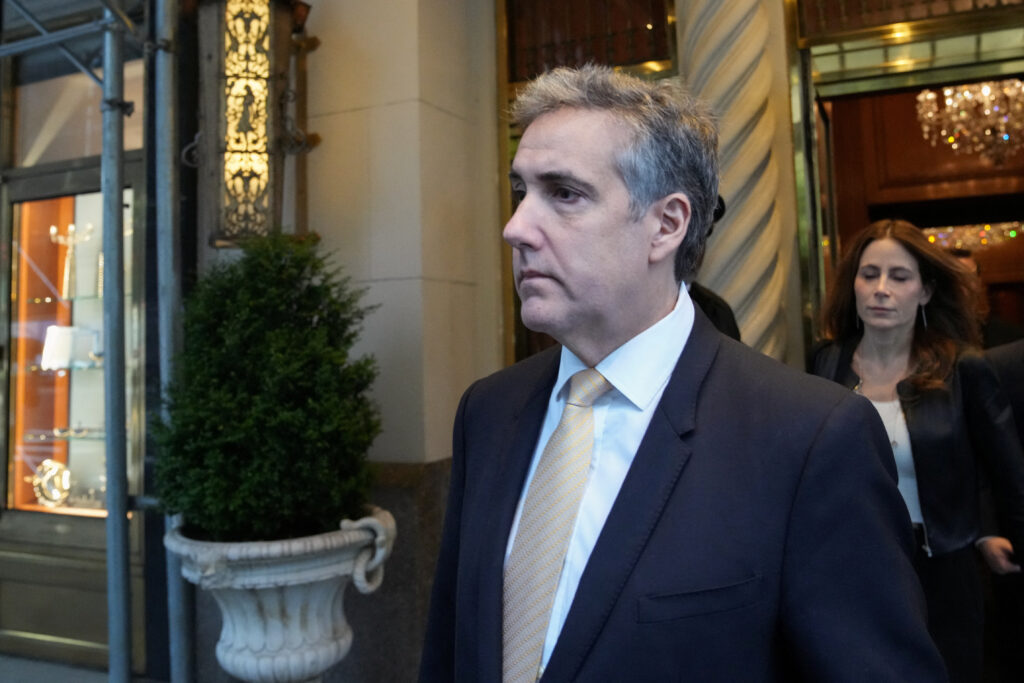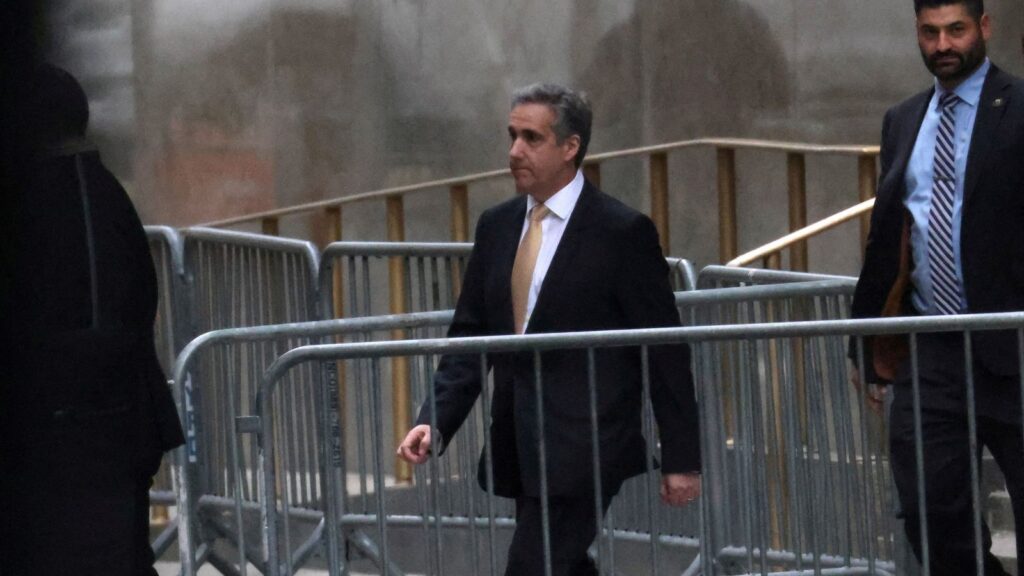
Trump Prosecutors’ Evidence Bolsters Michael Cohen’s Testimony, Experts Say
In the ongoing criminal trial of former President Donald Trump, prosecutors are presenting compelling evidence that supports the testimony of his estranged former attorney, Michael Cohen. Despite attempts by Trump’s defense to discredit Cohen as a disgruntled ex-employee, legal experts argue that the prosecution has effectively corroborated Cohen’s claims with substantial evidence and accounts from various sources.
Cohen, who testified for the prosecution, detailed Trump’s involvement in the payment of $130,000 to adult film actress Stormy Daniels to silence her before the 2016 election, along with efforts to conceal the transaction. While the defense sought to undermine Cohen’s credibility during cross-examination, experts note that the prosecution has largely established Trump’s awareness of the scheme.
Although direct corroboration of Cohen’s private conversations with Trump is lacking, prosecutors have presented circumstantial evidence indicating Trump’s involvement. This includes testimony from David Pecker, former publisher of the National Enquirer, regarding discussions with Trump and Cohen about handling potentially damaging stories, as well as call logs and handwritten notes outlining reimbursement plans.
Despite the wealth of circumstantial evidence, some critical aspects of Cohen’s testimony remain uncorroborated, notably conversations regarding reimbursement plans held at Trump Tower and in the Oval Office. The absence of key witness Allen Weisselberg, Trump Organization’s CFO, who could potentially confirm or refute Cohen’s statements, is notable.
Weisselberg’s decision not to testify, invoking his Fifth Amendment right against self-incrimination, underscores the complexity of the trial. His absence leaves unanswered questions and potential doubts for the jury, highlighting the significance of corroborating evidence in establishing Trump’s guilt or innocence.
As the trial progresses, the prosecution’s ability to connect the dots and present a cohesive narrative supported by evidence will be pivotal in determining Trump’s fate. Despite the absence of certain key witnesses, legal experts emphasize the importance of circumstantial evidence in building a compelling case against the former president.
In the unfolding drama of Donald Trump’s criminal trial, legal experts are closely scrutinizing the mounting evidence presented by prosecutors, which appears to reinforce the testimony of Michael Cohen, Trump’s former attorney turned accuser. Despite attempts by Trump’s defense team to cast doubt on Cohen’s credibility, the prosecution has pieced together a compelling narrative supported by a wealth of corroborating evidence and witness accounts.
Cohen’s pivotal testimony revolves around Trump’s alleged directive to pay hush money to adult film star Stormy Daniels and subsequent efforts to conceal the transaction. While the defense has sought to portray Cohen as a vindictive liar, experts point to the prosecution’s success in substantiating key aspects of his testimony.
Central to the case are revelations from witnesses like David Pecker, former National Enquirer publisher, who shed light on discussions between Trump, Cohen, and themselves regarding the handling of potentially damaging information. Additionally, phone records and handwritten notes provide further insight into the intricate web of payments and cover-ups orchestrated within Trump’s inner circle.
However, the absence of crucial witness Allen Weisselberg, Trump Organization’s CFO, looms large over the trial. Weisselberg’s decision not to testify, citing his Fifth Amendment rights, leaves critical gaps in the prosecution’s case and raises questions about the extent of Trump’s culpability.
As the trial unfolds, legal observers emphasize the importance of circumstantial evidence in connecting the dots and painting a comprehensive picture of Trump’s involvement. While Cohen’s testimony may lack direct corroboration in certain areas, the overarching narrative supported by documentary evidence underscores the prosecution’s strategy to build a robust case against the former president.
With the trial poised to enter its next phase, the prosecution’s ability to navigate these complexities and present a compelling argument to the jury will be pivotal. Despite the challenges posed by the absence of key witnesses, experts remain optimistic about the strength of the evidence and its potential to sway the outcome of this historic trial.
MOST KEY POINTS:-

- Michael Cohen, Trump’s former attorney, testified in Trump’s criminal trial regarding hush money paid to Stormy Daniels.
- Prosecutors have presented substantial evidence supporting Cohen’s testimony, despite attempts by Trump’s defense to discredit him.
- Evidence includes witness accounts, phone logs, and handwritten notes implicating Trump in the scheme.
- While some aspects of Cohen’s testimony lack direct corroboration, circumstantial evidence suggests Trump’s involvement.
- The absence of key witness Allen Weisselberg raises questions about the prosecution’s case.
- Legal experts emphasize the importance of circumstantial evidence in building a compelling case against Trump.
- The trial’s outcome hinges on the prosecution’s ability to present a cohesive narrative supported by evidence.
- Cohen’s testimony alleges Trump directed him to pay $130,000 to silence Stormy Daniels before the 2016 election.
- Prosecutors have portrayed Trump as a micromanager of his business affairs, suggesting his awareness of the scheme.
- David Pecker’s testimony, along with phone records and handwritten notes, provide additional support for Cohen’s claims.
- Despite efforts to undermine Cohen’s credibility, legal experts note the prosecution’s success in bolstering his testimony.
- The trial’s focus on whether Trump falsified business records to conceal campaign finance violations elevates the stakes.
- Weisselberg’s absence leaves unanswered questions about Trump’s level of involvement and complicates the prosecution’s case.
- As the trial progresses, the significance of corroborating evidence and circumstantial details becomes increasingly crucial.
